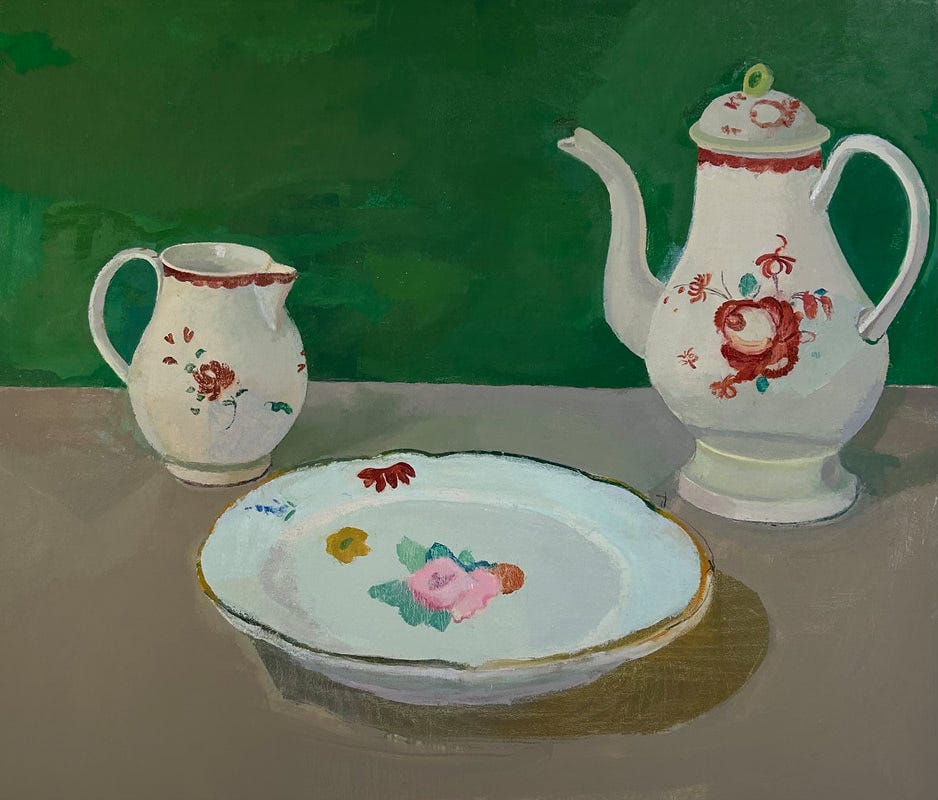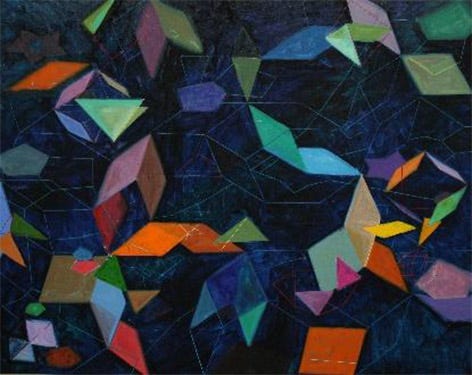Items of Interest, Fierce Metaphysical Poke Edition
"To some, their enthusiasm may seem a bit extreme."
Howard Husock, Italy’s Non-Cancel Culture. “The loss that comes from laundering the past was made clear to us in the historical lesson our tour group received that day—a lesson that would have been impossible if cancel culture, American-style, had prevailed. Over more than four hours, the reminders—and remainders—of ‘Il Duce’ served as a point of entry to a history that underscored why we view Mussolini as an historic villain. At the same time, they provided a series of clues to help answer the question that prompted me to book the tour in the first place: How was it that the country of the Renaissance, of great art and great literature, had veered so far off course as to help enable the Holocaust?”
Alex Diggins, ‘Cancelled’ choreographer Rosie Kay: ‘In a culture of fear you can’t make art’. “But six months later, Kay set about crowdfunding support for her new company K2C0, and created a ‘freedom of Expression Charter.’ It promises her workplace will be a ‘safe space where we are free to express our thoughts and feelings without fear of being silenced, shut down or cancelled,’ and those she works with will be encouraged to sign.”
Sarah Christine George, The Fierce Reality of Beauty. “In her latest book, The Wounds of Beauty, Princeton Theological Seminary Professor Margarita Mooney Clayton (then publishing as Margarita Mooney Suarez) has convened a cadre of intellectuals who, despite their wide-ranging areas of expertise (among them cheese-making and iconography), share a fervent belief that Beauty is essential both for ultimate happiness and for present flourishing. To some, their enthusiasm may seem a bit extreme. But for Mooney Clayton and her interlocutors, Beauty is not so much a pretty picture as a fierce metaphysical poke.”
Luke Jones, Martin McDonagh: Theatres have refused my plays over unpalatable language. “I do think it's a good idea to write something that's dangerous or explosive.”
Jack Williams, The Economics of Arts and Culture. “The conscious use of imagination in the production of objects intended to be contemplated or appreciated as beautiful is the official definition of art. However, I believe this falls short in including contemporary forms of entertainment, such as sports, martial arts, comedy, and other entertainment mediums. In fact, the value of entertainment is the key economic context needed to fully appreciate the arts placed before our very eyes. Culture demands to be entertained by the art that is supplied.”1
Alexander Adams, Are most artists ready “to flip”? “Disgruntled art lovers of a liberal persuasion might place faith in the reassuring idea of culture as a pendulum, but it is actually a ratchet designed to only go one way. If there is to be hope of seeing a rich array of art produced and appreciated for its aesthetic qualities, that ratchet has to be broken.”
Joshua T. Katz, Do Humanists Care about Academic Freedom? “It should be a turnoff to smart undergraduates that not a single colleague in three-quarters of the departments that make up the humanities division cares enough about academic freedom to join the [Council on Academic Freedom at Harvard]: comparative literature, East Asian studies, English, history of art and architecture, linguistics, music, Slavic languages and literatures, etc. Maybe students are already so turned off that nothing will bring them back. Or—worse—maybe all too many of those who still gravitate toward courses in these departments actually like what the humanities have become.”2
Tony Spanakos, Scruton’s Conservative Case for the Union of Arts and Politics. “Whether fascist, communist, liberal, or other, many political movements deliberately cultivated artists and deployed the arts as a vector for what later was called social engineering. If such art is meant to persuade, the observer still has freedom. If art is meant to overcome that freedom, is it still art?”
Forthcoming: Totality: Abstraction and Meaning in the Art of Barnett Newman by Michael Schreyach.
Closing soon: Xico Greenwald, Armine Bozhko, Wes Hempel, and Sherri Wolfgang at George Billis Gallery, through April 29.
Closing soon: “Visual Language & Catharsis” at Reeves Art & Design through April 30.
Closing soon: “Things Past: Andrew L. Shea and Holden Willard” at Alice Gauvin Gallery through May 7.
Opening soon: “Made in Paint” at the Sam & Adele Golden Gallery, starting April 29.
Opening soon: “Tony Robbin: HyperSpace: Line, Color, Form, Pattern” at David Richard Gallery, May 2-30.
“Art is entertainment.” - Walter Darby Bannard, Aphorisms for Artists.





In a culture of fear one can live but not thrive, and it is a restricted, compromised life controlled by fear, not lived fully or abundantly. Thus, it is a kind of half-life, based on what is allowed and not on what is desired or possible in freedom. The resulting art will naturally be impoverished if not frankly prostituted, stunted or perverted one way or another. Everyone knows this, except perhaps fanatical zealots, but plenty of people are still willing to conform and play the official game, and they do.
As for academic freedom, that's a misplaced if not irrelevant priority. What obviously matters is academic fashion, particularly sociopolitical fashion, especially since that has major bearing on career prospects. All too often, if one's not duly PC, one's academic career ain't going nowhere, or certainly not very far. I give you a quote (in translation) by Spanish rogue historian María Elvira Roca Barea:
"Why would an intellectual seeking career success, like everybody else, adopt an extremely uncomfortable and possibly career-destroying position by becoming a problem, a real and serious problem, for the dominant culture? Insubordination has a price. Let's not confuse matters. This is not about the eternal nonconformist intellectual à la Voltaire who has been and is an ornament of the circles of power by way of being critical. That is salon "revolution" in the style of the limousine left. It's been working beautifully for centuries. It's part of the game. It doesn't touch the truly essential levers of politics and cultural dominance. That is jumping with a net."